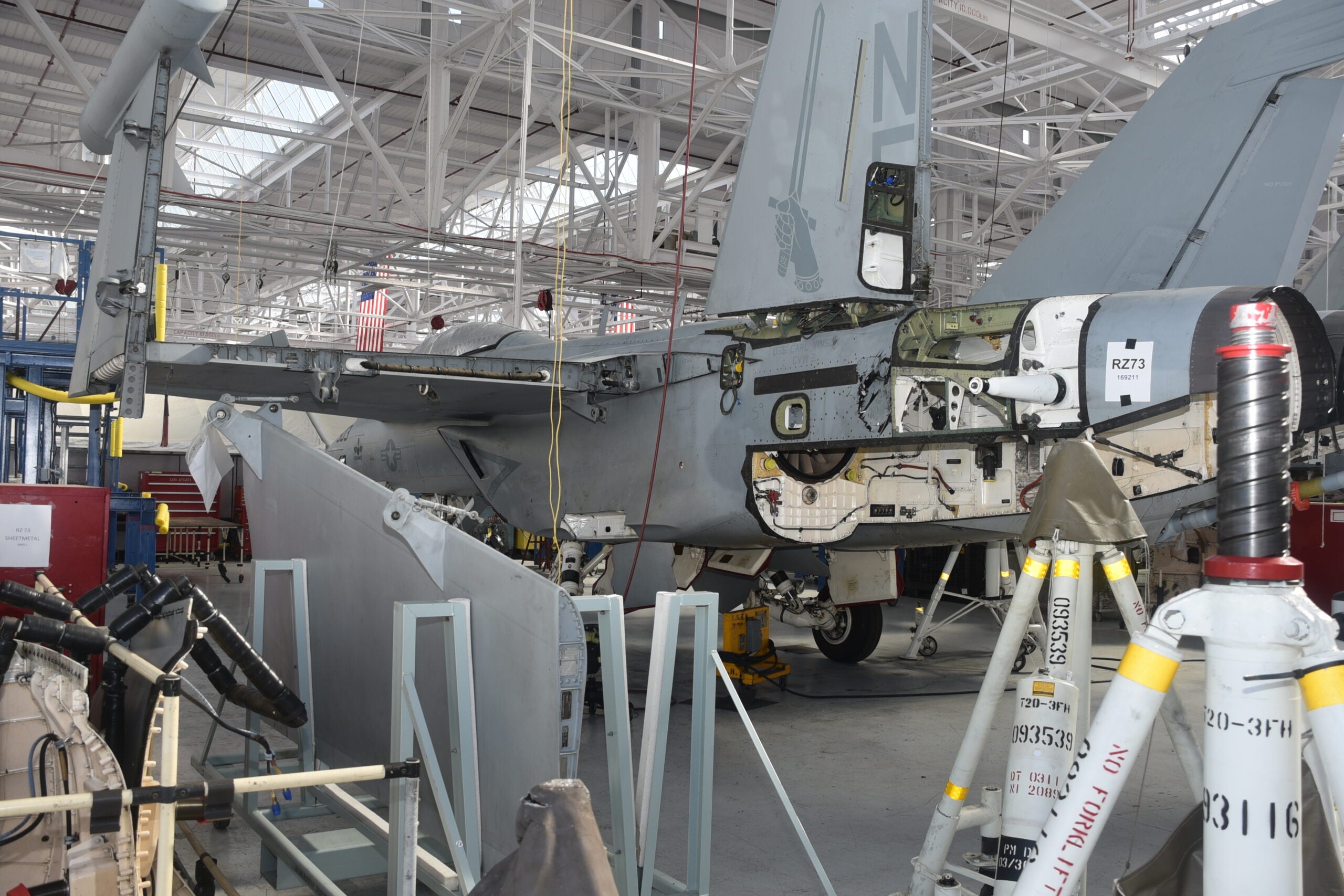
The US Navy has chosen Fleet Readiness Center Southwest (FRCSW) to provide in-service repair (ISR) for an EA-18G Growler aircraft.
The aircraft, which suffered a flight deck mishap, was inducted on 15 February and was assigned to FRCSW’s Electronic Attack Squadron (VAQ) 136.
During a mission in South China Sea on 14 January, the EA-18G Growler‘s flight deck caught fire while aboard the US Navy’s aircraft carrier USS Carl Vinson (CVN 70).
The aircraft’s aft fuselage under its vertical tail was also damaged.
Besides, the S9 skin of Growler, in between the fuselage structure including Y631 and Y645 formers, was punctured.
F/A-18 Legacy and E/F programme manager Ehren Terbeek said: “The repair plan is to remove the vertical tail in order to remove the S9 and S10 skins.
“We will replace the S9 skin and are hoping to save the S10 skin after evaluating it with a non-destructive inspection (NDI).
“We will need to NDI the Y631 former to verify that there is no crack, put the skins back on and place the vertical tail back on.”
The FRCSW’s Flexible Manufacturing Cell (FMC) in Building 472 will support the manufacturing of Y645 former, which is made of aluminum.
FMC is an automated system consists of six computer numerically controlled (CNC) five-axis machines, which can be used for manufacturing aluminum, steel and titanium components, and a palletising system.
According to programme manager Terbeek, the manufacturing of Growler’s aluminum former will take around three weeks from the time team receives the material.
The total estimated cost of manufacturing is approximately $208,000.
Terbeek added: “Of that amount about $107,000 would be for non-recurring charges for modelling, programming and prove-out due to the fact this is the first time it is being manufactured; plus, material is $23,906.”
Furthermore, the repair works will be supported by three sheet metal mechanics, a crew leader and other teammates from the FRCSW’s engineering and manufacturing departments.
Earlier in March this year, the FRCSW’s Fleet Logistics Multi-Mission Squadron 30 (VRM-30) also inducted a CMV-22 Osprey aircraft for repair.



